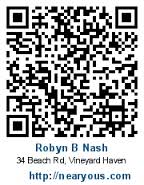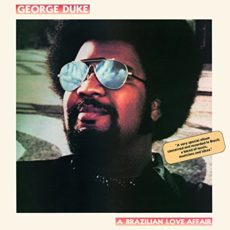
Daily Dose Of Jazz…
George Duke was born on January 12, 1946 in San Rafael, California and raised in Marin City. It was at the young age of 4 that he first became interested in the piano when his mother took him to see Duke Ellington in concert. He began his formal piano studies at the age of 7, at his local Baptist church. Attending Tamalpais High School in Mill Valley, he went on to earn a bachelor’s degree in trombone and composition with a minor in contrabass from the San Francisco Conservatory in 1967.
Initially he played with friends from garages to local clubs, George quickly eased his way into session work, before getting his master’s degree in composition from San Francisco State University. Although starting out playing classical music, his musician cousin Charles Burrell convinced him to switch to jazz and improvise what he wanted to do.
1967 saw Duke venturing into jazz fusion, playing and recording with violinist Jean-Luc Ponty, as well as performing with the Don Ellis Orchestra, and Cannonball Adderley’s band, and recorded with Frank Zappa and The Mothers of Invention on a number of albums through the 1970s. He also played with Ruth Underwood, Tom Fowler, Bruce Fowler from Zappa’s Overnite Sensation band that he was a part of, along with Johnny “Guitar” Watson and jazz guitarist Lee Ritenour. Lynn Davis and Sheila E recorded with him on his late-1970s solo albums Don’t Let Go and Master of the Game.
During the 1980s he collaborated with bassist Stanley Clarke and produced the Clarke/Duke Project that released three albums, he served as a record producer and composer on two instrumental tracks on the Miles Davis albums Tutu and Amandla, worked with a number of Brazilian musicians, including singer Milton Nascimento, percussionist Airto Moreira and singer Flora Purim, and in the 1992 film Leap of Faith featured gospel songs and choir produced by him and choir master Edwin Hawkins.
Duke was musical director for the Nelson Mandela tribute concert at Wembley Stadium in London, temporarily replaced Marcus Miller as musical director of NBC’s late-night music performance program Sunday Night during its first season, and was a judge for the second annual Independent Music Awards to support independent artists’ careers. He worked with Jill Scott on her third studio album, The Real Thing: Words and Sounds Vol. 3; and put together a trio with David Sanborn and Marcus Miller for a tour across the United States.
His educator side had him teaching a course on Jazz And American Culture at Merritt College in Oakland, California. He was nominated for a Grammy as Best Contemporary Jazz Performance for After Hours in 1999, was inducted into The SoulMusic Hall Of Fame in 2012, and was honored with a tribute album My Old Friend: Celebrating George Duke, produced by long-time friend and collaborator Al Jarreau, that received a NAACP Image Award for Outstanding Jazz Album in 2015.
As leader he recorded some four dozen albums and as sideman he worked with such artists as Third World, The Keynotes, Gene Ammons, Billy Cobham, Eddie Henderson, Alphonse Mouzon, Michael Jackson, Deniece Williams, Miles Davis, Dianne Reeves, John Scofield, Chanté Moore, Joe Sample, Phil Collins, Regina Belle, Teena Marie, Joe Williams, Gerald Wilson and Larisa Dolina among many others.
Keyboard pioneer, vocalist guitarist, trombonist, producer and composer George Duke passed away on August 5, 2013 in Los Angeles, California from chronic lymphocytic leukemia. He was 67. His songs have been sampled by Daft Punk, Kanye West and Ice Cube among numerous others.
![]()
#preserving genius
More Posts: bass guitar,flute,keytar,piano,saxophone,synthesizer,trombone,vocal
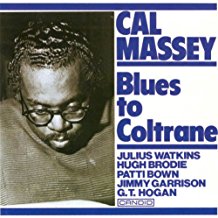
Daily Dose Of Jazz…
Calvin Massey was born on January 11, 1928 in Philadelphia, Pennsylvania and studied trumpet under Freddie Webster. Following his education on the trumpet he and played in the big bands of Jay McShann, Jimmy Heath, and Billie Holiday.
In the late 1950s he led an ensemble with Jimmy Garrison, McCoy Tyner, and Tootie Heath, while John Coltrane and Donald Byrd occasionally played with them. Towards the end of the decade he gradually receded from active performance and concentrated on composition. Some of Cal’s compositions that were recorded are Bakai by Coltrane, Assunta, Father and Son by Freddie Hubbard, Message from Trane by Jackie McLean, These Are Soulful Days by Lee Morgan, Fiesta by Philly Joe Jones and Cry of My People by Archie Shepp. Horace Tapscott and McCoy Tyner also recorded his work.
He played and toured with Shepp from 1969 until 1972. An outspoken activist, Massey’s political standpoint was radical and his work was strongly connected with the Civil Rights Movement of the 1960s and ’70s. The Black Panthers were an inspiration for The Black Liberation Movement Suite which he created with Romulus Franceschini. The Suite was performed three times at Black Panther benefit concerts. Massey’s ideology resulted in him getting blacklisted or whitelisted according to Fred Ho from major recording companies and only one album was recorded under his name.
He also performed in The Romas Orchestra with Romulus Franceschini, and had The Music of Cal Massey: A Tribute, recorded by Fred Ho, Quincy Saul and the Green Monster Band. Cal’s only album recorded as a leader two days after his birthday in 1961, Blues to Coltrane, on Candid label, was not released until fifteen years later in 1987. He composed all the songs and the personnel with him on this session were Julius Watkins on French horn, pianist Patti Brown, bassist Jimmy Garrison, Hugh Brodie on tenor saxophone, and G. T. Hogan on drums.
Trumpeter and composer Cal Massey passed away from a heart attack at the age of 43 in New York City, New York on October 25, 1972.
Sponsored By
![]()
#preserving genius
More Posts: trumpet
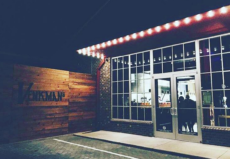
The Jazz Voyager
Taking a road trip to Venkman’s in my old stomping grounds of Atlanta, Georgia. Located at 740 Ralph McGill Blvd NE, 30312, I am looking forward to enjoying an evening of jazz beginning at 8:00pm with Joe Gransden’s Jazz Jam. With a wealth of Atlanta’s finest musicians, both emerging and established, it has become a lively and packed event, so you might want to make reservations, just in case it becomes standing room only.
The ex–soda bottling plant turned dining establishment in the Old Fourth Ward with subway tiles, an open kitchen and exposed ceiling beams now plates modern comfort food with a contemporary spin in the ambiance of the industrial-chic dining room with a Tuesday night performance of jazz on an ample stage. Phone: 470 225-6162 / Reservations: opentable.com / Menu: venkmans.com
Sponsored By
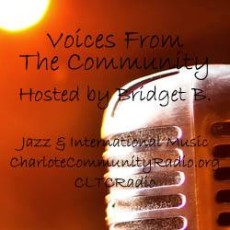
Voices From The Community
![]()
#preserving genius
More Posts: adventure,club,jazz,music,restaurant,travel,voyager
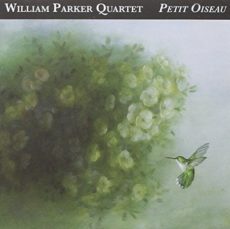
Daily Dose Of Jazz…
William Parker was born January 10, 1952 in the Bronx, New York. He was not formally trained as a classical player, though he did study with Jimmy Garrison, Richard Davis, and Wilbur Ware and learned the tradition and is one of few jazz bassists who frequently plays arco.
Active on the free jazz scene since the early Seventies, Parker first came to public attention with pianist Cecil Taylor. The 1990s saw Parker’s prominence and public profile grow as an influential bassist in the New York City experimental jazz scene.
He has long been a member of saxophonist David S. Ware’s quartet, in Peter Brötzmann’s groups and has also played with various other groups that included Paul Murphy. He is a member of the cooperative Other Dimensions In Music and together with his wife, Patricia Nicholson Parker, organizes the annual Vision Festival in New York City.
His Sound Unity album has been listed in the Top 10o and his Double Sunrise over Neptune made the Top 10 album pick list by Amazon, and his Petit Oiseau has been chosen as one of the best jazz disks of 2008 by The Wall Street Journal, the BBC’s Radio Three, The Village Voice and PopMatters.
In 2006, Parker was awarded the Resounding Vision Award from Nameless Sound. His first book, Who Owns Music?, assembles his political thoughts, poems, and musicological essays In June 2011, while his second book, Conversations, is a collection of interviews with notable free jazz musicians and forward thinkers, mainly from the African-American community.
Free jazz bassist William Parker continues to record and perform regularly at music festivals around the world.
![]()
#preserving genius
More Posts: bass
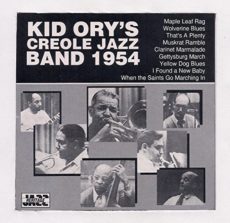
Daily Dose Of Jazz…
Edward Bertram Garland was born January 9, 1895 in New Orleans, Louisiana. By 1910 he was playing bass drum with brass bands including Frankie Duson’s Eagle Band. He then took up tuba and string bass, doubling on the two instruments which filled similar roles in different types of bands.
He played with the Excelsior Brass Band, Manuel Perez’s Imperial Orchestra and then joined other early New Orleans bands playing in Chicago, Illinois and California, such as Lawrence Duhé and Freddie Keppard. In 1916 Garland joined King Oliver and went to California and during the Depression he led his own One-Eleven Jazz Band.
1944 saw Ed gaining notoriety as a member of a traditional New Orleans band that was a leader of the West Coast revival, put together for the CBS Radio series The Orson Welles Almanac. The all-star band also included Mutt Carey, Jimmie Noone (succeeded by Barney Bigard), Kid Ory, Bud Scott, Zutty Singleton and Buster Wilson. Renamed Kid Ory’s Creole Jazz Band, the group then made a significant series of recordings on the Crescent Records label.
Garland appeared in the 1959 film Imitation of Life, performing with Andrew Blakeney, Teddy Buckner, George Orendorf and Joe Darensbourg in the funeral sequence Trouble of the World featuring Mahalia Jackson.
String bassist Ed Garland, sometimes known as Montudie Garland, a nickname he much disliked, passed away in London, England on January 22, 1980.
Sponsored By
![]()
#preserving genius
More Posts: bass




